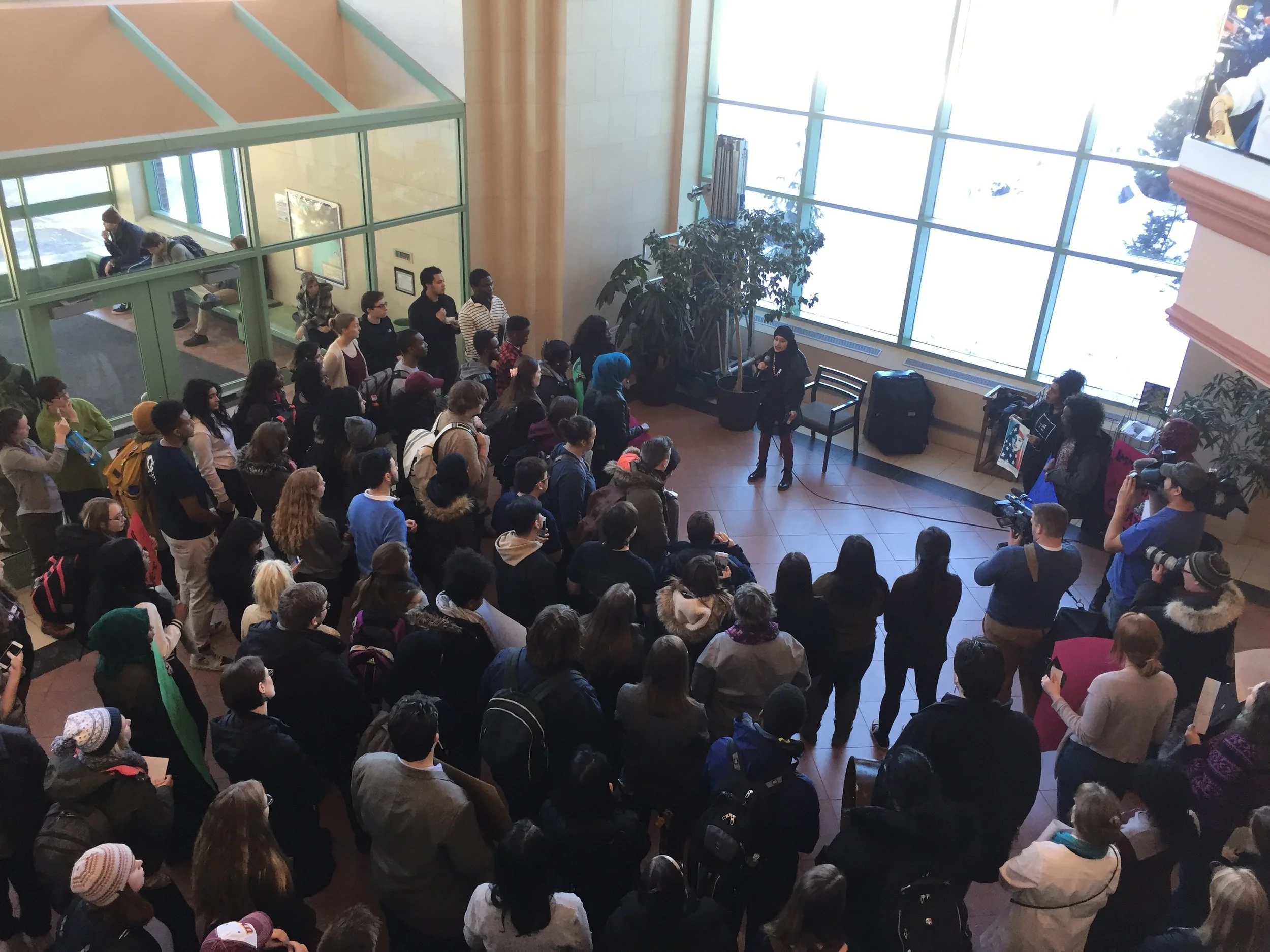Pro-Mining vs. Anti-Mining: the Public Speaks Out
By Megan Mulcahy
A growing public interest regarding copper-nickel mining in the Rainy River Watershed of Minnesota resulted in a public hearing. The hearing was held last Thursday at the DECC.
As the need to protect the environment increases as well as the need to boost Minnesota’s expanding economy, debate has arisen between pro-miners and anti-miners. The U.S. Forest Service is looking into a proposed 20-year withdrawal of federal minerals directly on the Superior National Forest and near the Rainy River Watershed of the Boundary Waters.
The event had a turnout of over 1,000 people with both pro-miners and anti-miners in attendance. Each side had the opportunity to publicly speak in an effort to share their respective views on the 20-year withdrawal to the U.S. Forest Service and the U.S. Bureau of Land, who hosted the event.
“I think it was good because we figured we had probably somewhere around 1,200 to 1,300 people,” Kristina Reichenbach, Public Relations Director of Superior National Forest, said. “So first of all, people knew about it and people chose to be involved. That’s one of the first objectives when we have a public meeting.”
During the last month of the Obama administration, it was announced that there would be a release of all mineral leases from the Rainy River Watershed. This also included any new exploration or mining across nearly 235,000 acres that are connected to the federal land.
Due to the proposal, the U.S. Forest Service and the U.S. Bureau of Land has extended the original 90-day scoping period to an additional 120 days to ensure that there is a thorough, scientific investigation.
For anti-miners, copper-nickel mining in the boundary waters poses a threat to the environment, wildlife, human health and to the tourism industry.
“We know that sulfide mining is one of the most toxic industries that exists, and we know that the world health organization lists the ten toxins of greatest concerns to human health and that sulfide mining releases at least six of these,” Jennifer Pearson, a family physician and professor at UMD, said.
“Because of this there has been a physician outcry in regards to concern for sulfide mining in our state,” Pearson added.
Minnesota Public Interest Research Group, a student organization at UMD, also had the chance to get involved at the public hearing.
“This land has been under protection for a really long time,” Rachel Hopwood, Task Force Leader of MPIRG, said. “It does not make any sense to take those protections away for a short-term purpose that will cause long-term damage. The weight of those damages will be forced upon the people that actually live there.”
The pro-miners that attended the public hearing are concerned about legal-matters, including Minnesota’s robust economy, job creation and stability for the company. Twin Metals is in the midst of engineering a project for mining near the Boundary Waters Canoe Area in hopes that it will be unharmful to the environment and beneficial to the company, as well as to the citizens of Minnesota.
“The company is putting together an engineering package that proves that we care about the environmental impacts and that has been a guiding principle for our company since day one,” Glenn Barr, employee of Twin Metals, said.
While the project has yet to be completed, people remain concerned about the impact that the proposal, which would put an end to the mining project, could have on communities and the economy.
“This proposal not proceeding will have a devastating economic impact on reaching far beyond Twin Metals, affecting thousands of families that live and work in these communities,” Kevin Baker, a representative for Twin Metals, said.
During the additional 120-day scoping period, public input is encouraged until midnight August 17, 2017 via email and/or hand-written comment. Another public hearing will be held in the Iron Range later in the scoping period.
Written comments may be submitted via U.S. Mail to the Superior National Forest, ATT: Minerals Withdrawal, 8901 Grand Ave. Place, Duluth, MN 55808. Comments may also be sent via email to: comments eastern-superior@fs.fed.us or via fax to 218-626-4398.





